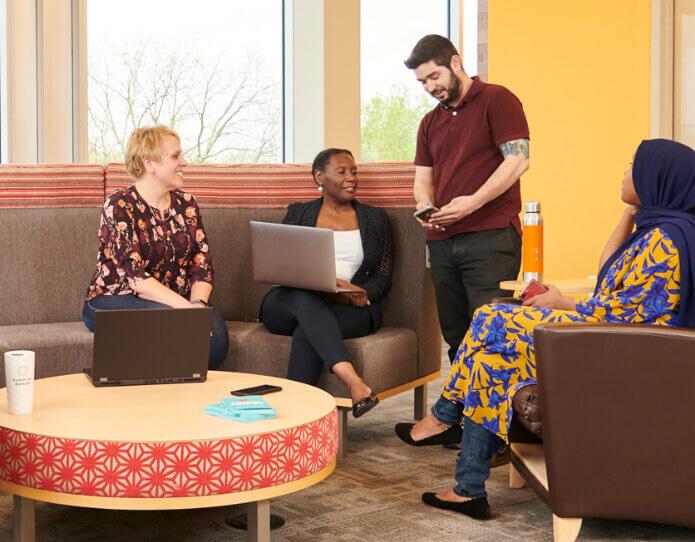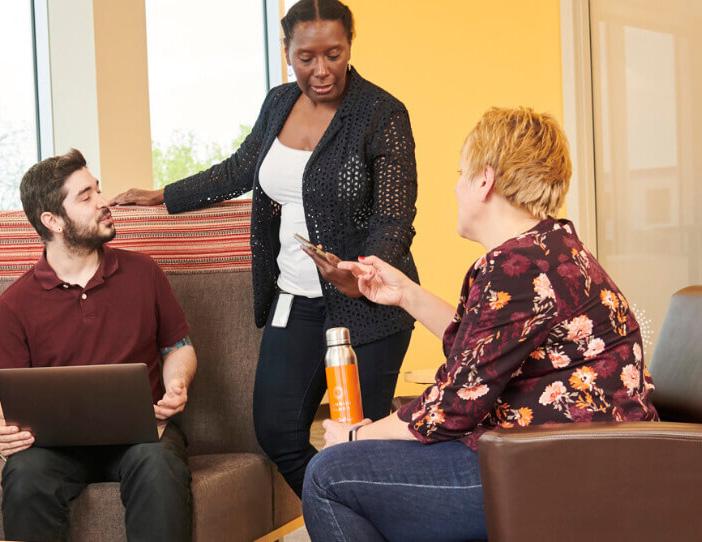
6 minute read
EXECUTIVE BIO
While it’s easy to measure profits (many fintechs will know the feeling of seeing them eroded by the rising cost of doing business), how difficult is it to measure social impact? “You can measure it by way of some of our external manifestations,” Seydel continues. These include being a certified B Corporation as well as a Community Development Financial Institution (CDFI), which means the US treasury recognises Sunrise Banks for providing financial services specifically to low-income, underserved communities and those most in need.
The bank is also a Global Alliance for Banking on Values (GABV) institution – a benchmark that holds it to various standards in the provision of economic, social and environmental development. Community-mindedness and sustainable value are so ingrained to the way Sunrise Banks operates that staff get 40 hours of paid volunteering time every year and, in 2022 alone, the business donated almost $9,000 to various good causes during Charitable Giving Week as a result of employees’ own generosity.
“Sunrise Banks is very forward and active in putting mission with margin,” Seydel says. “That way, we can do sustainable good for our communities and our other stakeholders.”
Fostering fintech collaboration
Although Sunrise Banks is based around the Twin Cities Metro region, Seydel himself is based in Sioux Falls, South Dakota – where the business has a fintech partnership division. A graduate from Colorado Tech, he previously worked for Meta Payment Systems, where he says he faced an inflection point: choose to go down the client relationships and partnerships route, or pursue regulations instead.
He went after regulations – a decision that ultimately led to a career in regulatory compliance, joining Sunrise Banks in August 2012 and, following “opportunity after opportunity”, several senior roles in sales, operations and business development. He was appointed to his current role, Chief Fintech Officer, a year ago.
The fintech division at Sunrise Banks, which Seydel is now charged with heading up, is focused on fintech partnerships and creating opportunities for entrepreneurs who have conceived a way to lift up communities or make consumers’ lives better. “What we do in the fintech division is take those dreams and find a path to saying ‘yes’ – although we’re not the Make-A-Wish Foundation,” Seydel is keen to point out, stressing that there must be value alignment between fintechs and the bank’s own social mission and regulatory sustainability.

The bank runs the full gamut of collaboration – from pairing with fintechs who already have a product in the market and simply want another issuing or sponsoring institution, to co-creating from scratch with like-minded innovators who arrive with the seed of an idea in search of expertise to make it come to fruition. Alternatively, a third route might include the bank itself conceiving an idea that would benefit its customers and seeking partnerships that will enable it to facilitate that product launch. “Those are typically the three delivery channels in which the bank does fintech books of business,” Seydel says.
To understand what their customers need, Sunrise Banks needs to first know who they are. Thankfully, the organisation boasts a diversity of thinking to introduce a list the bank’s 319 employees are majority female (55% versus 45%, to be precise), with almost a quarter (23%) coming from underrepresented social groups. The bank’s staff speak a wide range of different languages – from native American tongues such as Choctaw to world languages like Farsi, Mandarin, Amharic and Tagalog.
The need to identify with the bank’s diverse customer base is clear to see.
Although the region is less deprived than Minnesota as a whole, there are still 270,000 people living below the poverty line – and there is a real mixed picture when it comes to poor and rich. It is a melting pot that neatly encapsulates the spirit of America, with lots of opportunity but also lots of wealth inequality. Sunrise Banks’ four retail locations, spread throughout Minneapolis, are strategically located in low-to-middle income census tracts to help the bank better serve its underrepresented customers. The Twin Cities region has plentiful graduate prospects too, with Sunrise Banks partnering with local universities on a successful internship programme.
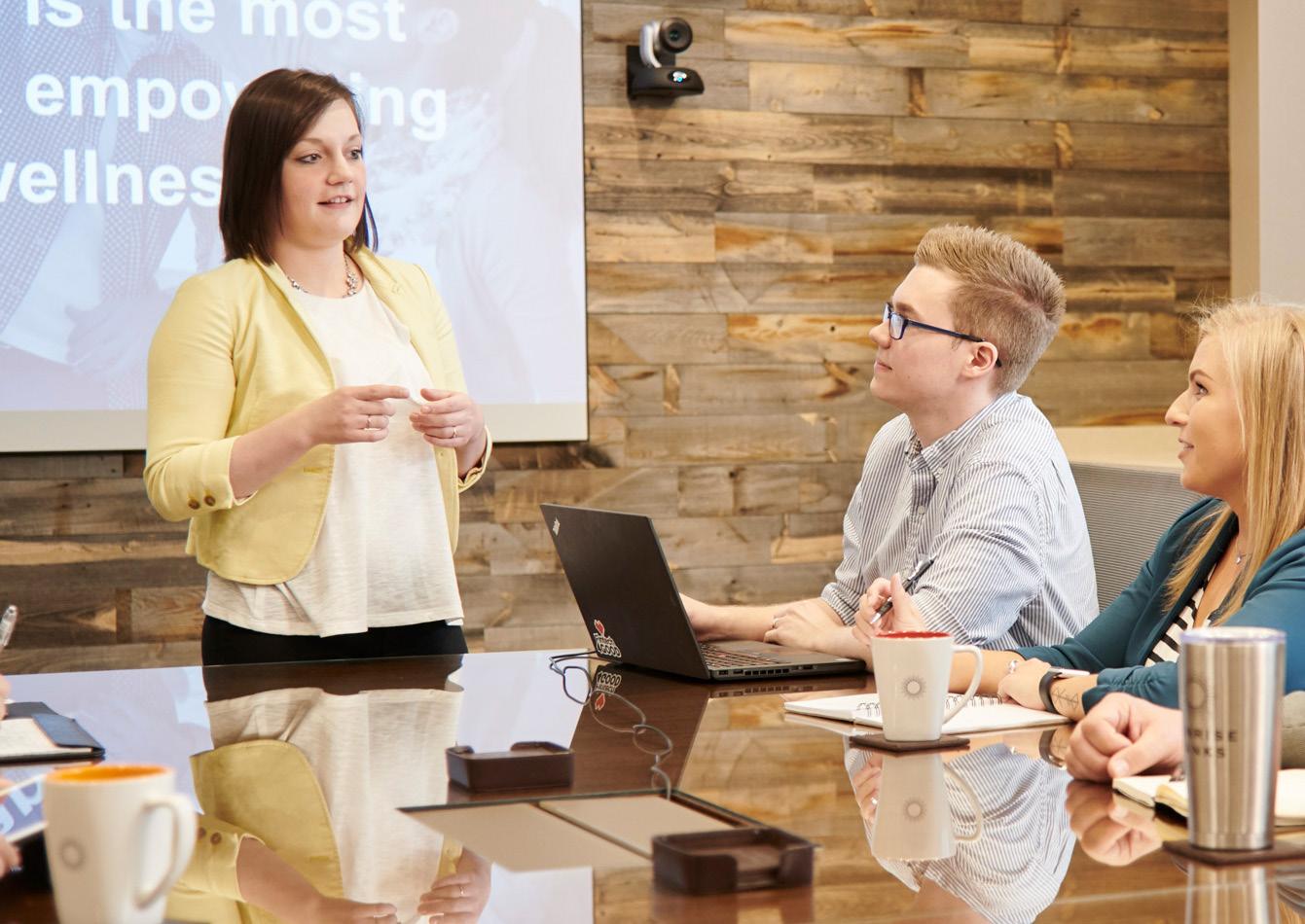
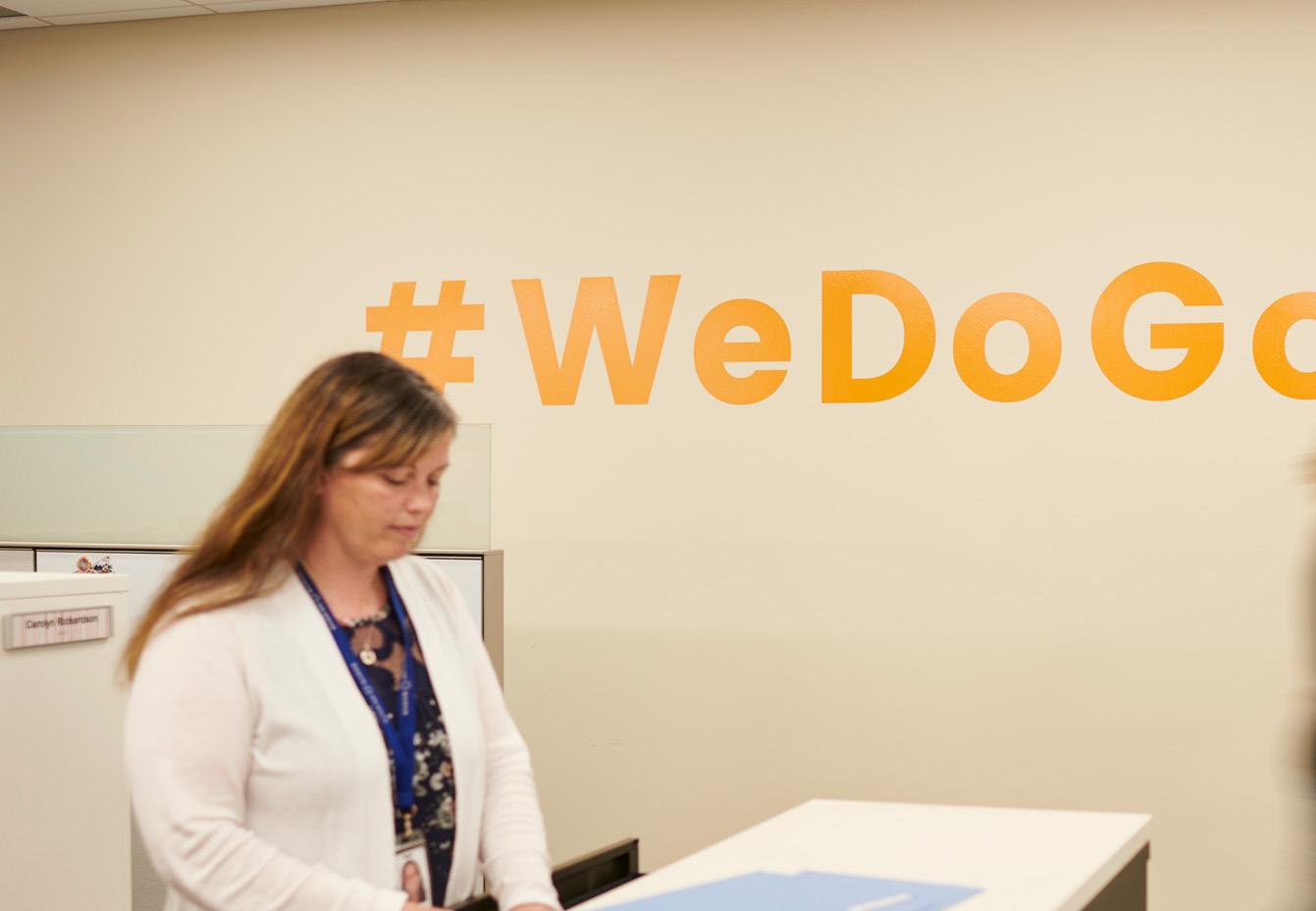
Bringing affordable lending into reach
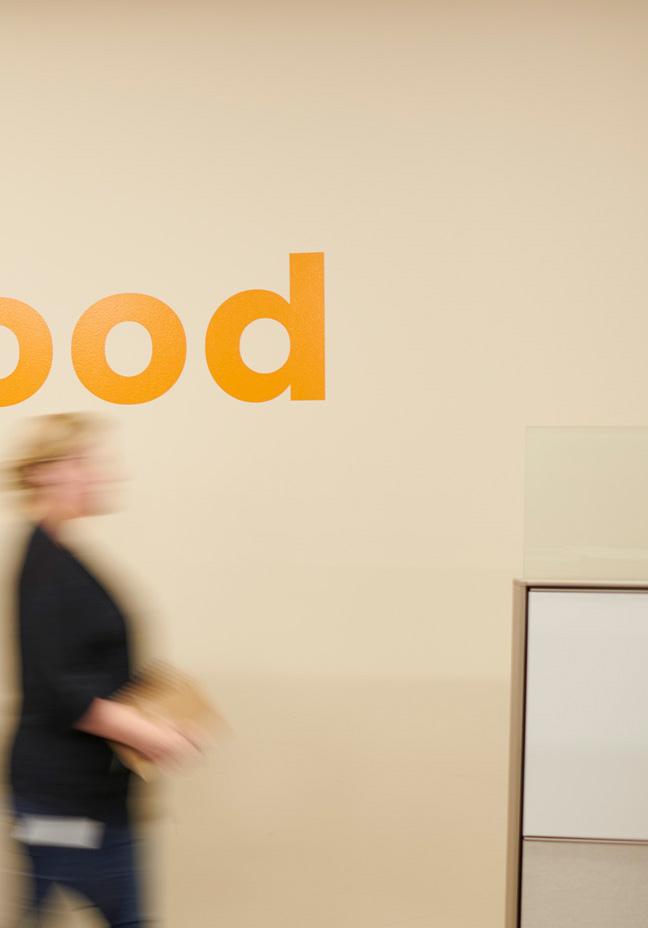

The core tenet of high-impact lending revolves around providing credit to as many customers as possible, Seydel puts it: “How can we take a product, have the lowest interest rate we can, and make it easy for them to repay so they don't even have to think about it? All they need to think about is what they're going to use that money for, and everything else happens on the backend without them needing to do a thing.”
One way the bank does this is by removing the need for credit checks in some products – which rely on an often-outdated snapshot of a customer's circumstances, and can marginalise those customers most in need of credit. If a borrower is in full-time employment and earns enough to be able to repay their loan, why shouldn't they be considered a safe debtor? Traditional credit checks, which have been accused of being outdated in the past, place surprisingly little emphasis on a borrower's earnings and instead focus on debt history and the promptness with which they repaid previous loans. In theory, a customer's financial situation could have worsened and their ability to repay deteriorated – but so long as they have repaid loans in the past, they are likely to be accepted by traditional lenders.
Sunrise Banks turns this antiquated process on its head. The effect is a suite of lending products that boosts financial inclusion for the bank's customers and drive down the cost of referencing. “With credit checks, there's going to be a document; there's going to be some compliance risk there; there's going to be a need for us to capture consumer information for us to run them through and provide them disclosures,” Seydel explains. “If you can take that component and design a product without doing a credit check, and remove all that complexity, then you'll reduce the cost. That's what we did.”
So doesn't the removal of credit checks add extra risk? In short, yes. Seydel acknowledges that there is inherently more risk, but the bank takes measures to ensure a customer's ability to repay and guard against lending to customers who can't afford it. Credit files don't contain information about earnings anyway, so Sunrise Banks is focusing on a metric that it believes is more central to a customer's ability to repay.
“What you're doing is knowingly accepting a marginal amount more risk,” he continues. “It’s all about driving down the credit product cost, it's about inclusivity, and it's about creating an environment that allows people to participate.”
Doubling down on financial inclusion
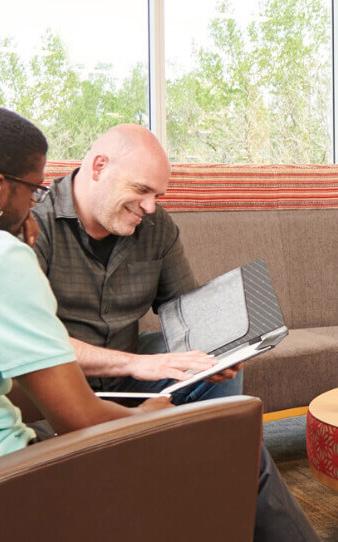
One of the ways Sunrise may improve its credit decisioning in future is by utilising open banking, which will connect directly to a customer's bank account and provide a clearer picture of their incomings, outgoings, and transactional history. But that still stops short of a full credit check. It stresses that this would be to aid the impact of what it already does; and, as a social enterprise, it has no plan to compromise on its mission in pursuit of greater profit margins.
Seydel says: “When we start to talk about open banking, gaining access to that data will allow us to look at underserved communities and structure products that appeal to them. When you look at Sharia-compliant loans, for example, you can't have interest rates with those. So how does the bank go about ensuring that margin? For us, that's secondary to how we actually structure that product.”
Another way Sunrise Banks improves financial inclusion for its customers is by allowing all customers – regardless of their race or background – to have access to the financial system. The diverse approach it takes to its workforce is mirrored in the work that it does with its customers, including those who are most often excluded from accessing financial services. This includes migrants.
Some migrants, particularly undocumented migrants, may lack a social security number (SSN), making it difficult for them to bank, save and borrow. But Sunrise Banks has a purpose loftier than one person's immigration status, so they have created innovative ways to ensure they can still offer products and services to that customer. One product replaces the need for a SSN with an individual tax identification number (ITIN), which an undocumented migrant is more likely to possess. It's all about creating products that are tailored to unique demographics or customer groups, the bank says, rather than just being another rejection letter along the way. In turn, doing good creates a competitive benefit for the bank.
“If those customers need to get a mortgage
